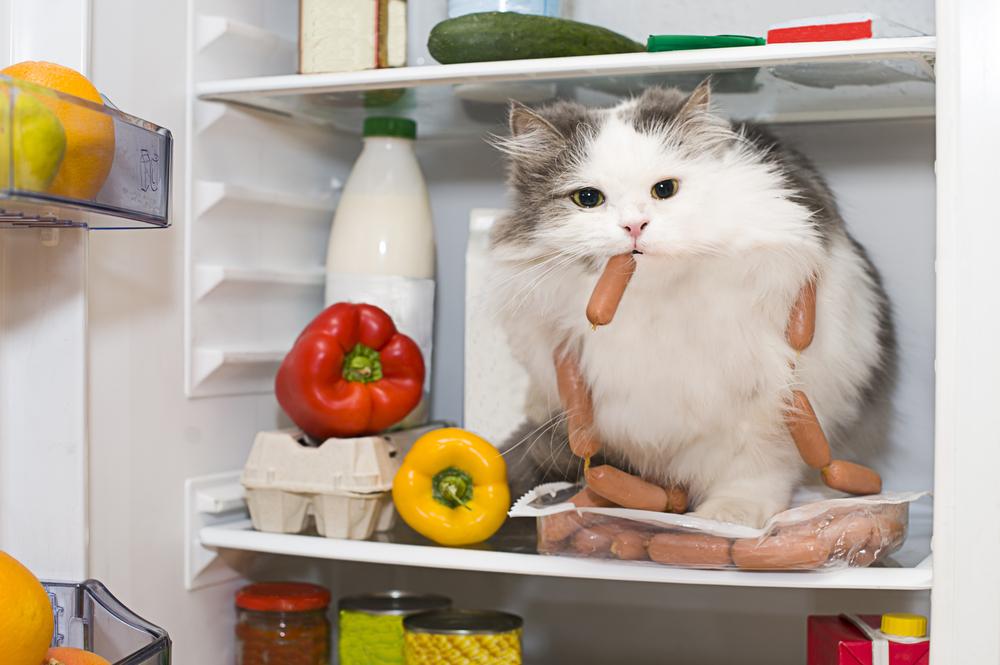
Human Foods that are Toxic for Cats
Cats can be fed dry or wet commercially sold cat food. There are three different methods to feeding your cat. You can free feed your cat, which is when you simply leave a bowl of food out for the cat to eat at its leisure. This doesn’t allow you to see how much your cat is eating and can lead to obesity. There is individual meal feeding, which is where you feed your cat a specific amount of food at specific times during the day. This allows you to know how much they’re eating and monitor their health. Mixed feeding is using a combination of the above feeding methods.
Overeating can lead to health concerns such as feline diabetes and arthritis. Feline diabetes is when the body does not produce enough insulin. Without the insulin, the brain becomes sugar deprived and can cause the cat to become constantly hungry even with accompanying weight loss symptoms. Cats with untreated diabetes are more likely to experience infections of the bladder, kidney, or skin. Cats with diabetes should be fed in regular intervals, such as twice a day. In addition, there are several types of food that shouldn’t be fed to cats due to their toxic nature and the ability to fatally harm cats. These include:
1. Grapes and raisins
A small amount of these can cause rapid kidney failure. The signs associated with this are lethargy, diarrhea, reduced appetite, decreased urination, and abdominal pain.
2. Garlic, onions, shallots, and scallions
These can cause damage to the red blood cells and lead to anemia. These are mostly poisonous when eaten in large quantities or when it’s a concentrated form such as garlic powder and onion powder. The symptoms that are seen are lethargy, weakness, and orange to dark red urine.
3. Chocolate
The substance called methylxanthines can cause vomiting, diarrhea, muscle tremors, and seizures. This substance is also found in caffeinated drinks and should be avoided.
4. Alcohol
If a cat gets even a little bit of alcohol it can cause vomiting, diarrhea, tremors, coma, and death.
Signs of feline toxicity include gastrointestinal signs such as vomiting and diarrhea, neurological signs such as tremors and seizures, respiratory signs such as difficulty breathing, skin redness or inflammation. Liver failure can cause lack of appetite, vomiting, diarrhea, dehydration, jaundice, and weight loss. Kidney failure can cause lack of appetite, vomiting, bad breath, increased drinking and urination, decreased drinking and urination, and weight loss. These signs can vary based on the particular poison that was ingested by the cat.



